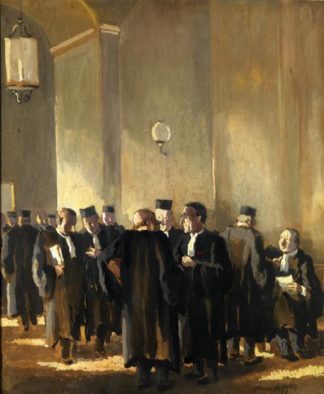The role of the lawyer: a spotlight on this sometimes hidden and misunderstood profession.
The story
The term lawyer is etymologically derived from de vocatus ad which means "called for". He is the one who assists others in court.
In the Middle Ages, the lawyer was a knight in shining armour and was likened to military knights because he too fought to defend the poor and humiliated. Lawyers were recruited from among the ecclesiastics, who were the only ones versed in the knowledge of the law, particularly Roman law.
The lawyer is also entitled to the title of "Master" in the same way as clerics who have studied theology or canon law.
During the French Revolution, the abolition of associations led to the banning of the Bar Associations. Anyone could plead.
However, in the course of the 19th century, the lawyer was able to regain his independence.
The Third Republic was the Republic of Lawyers. Out of twenty-three presidents of the Republic, eleven were lawyers.
And it is perhaps this image that today 'sticks to the lawyer's skin': the lawyer on his pedestal, the lawyer whose jargon is so unfamiliar to everyone, the lawyer with such easy verve and a sense of rhetoric that he can convince, seduce and even deceive.

But the Lawyer is also the image left by Victor Hugo who wrote in his famous novel "The Laughing Man : "This people is a silence, I will be the huge advocate of this silence.
Free to accept or refuse a case, as soon as he chooses to defend his client, whatever the opinion that one might have of him, whatever the judgement that might be given on a case, he assists, defends and represents him, in his capacity as an auxiliary of justice.
The lawyer must enable justice to be restored, whatever the dispute.
The role of the lawyer is very broad: legal representation, contract negotiation, negotiation of memoranda of understanding, drafting of contracts, drafting of company articles of association, helping employers manage their employeesWe provide expert appraisals in construction disputes, personal injury cases, and the protection of human rights and fundamental freedoms.
The lawyer provides information, carries out formalities on behalf of his clients, and drafts consultations in which he gives his clients advice and warnings.
He writes letters of formal notice, which can sometimes be successful and put an end to an emerging dispute, in particular by drawing up a memorandum of understanding.
Listening: the lawyer must listen during the first approach, when the client begins to describe his situation, at that precise moment when two personalities meet and decide whether or not to collaborate together in a relationship of mutual trust that professional ethics and deontology will make unshakeable.

The lawyer is a partner.
VigilantDid you say vigilant? The first of the qualities of the lawyer is vigilance as to the choice of jurisdiction, its territorial competence, its material competence, the time limits for the prescription of an action, the causes of inadmissibility; so many questions and doubts which make this profession a source of constant questioning and learning.
StrategicIndeed, you have to be! Choosing a particular action, a particular legal basis, preferring an amicable settlement of a dispute, opting for "a bad agreement rather than a good trial", such is the daily life of a lawyer: choosing, deciding, communicating with his client, because accompanying a client does not mean imposing everything on him, it also means thinking together, understanding his objectives and respecting his choices
But the independence of the lawyer also allows him to guide his client in order to ensure the best possible defence of his interests, sometimes with firmness! The lawyer decides, he decides in the sole interest of his client.
In a spirit of loyaltyIn the case of a dispute, the lawyer is obliged to inform his client of the foreseeable fees (a fee agreement is drawn up and must provide for all costs and include a clause informing the client that additional fees may be added to the sum already agreed in the event of the intervention of additional procedures), of the state of progress and the evolution of the case on a regular basis, of the chances of success, of the risks of failure, of the judicial contingency.
As a lawyer, I have sworn "to perform my duties with dignity, conscience, independence, probity and humanity".
Let's work together for the success of your business or your business in a responsive and demanding way.
Master Zakine uses rigour and human values to defend your rights.
The Cabinet Cécile Zakine is at your disposal. Do not hesitate to contact us.
